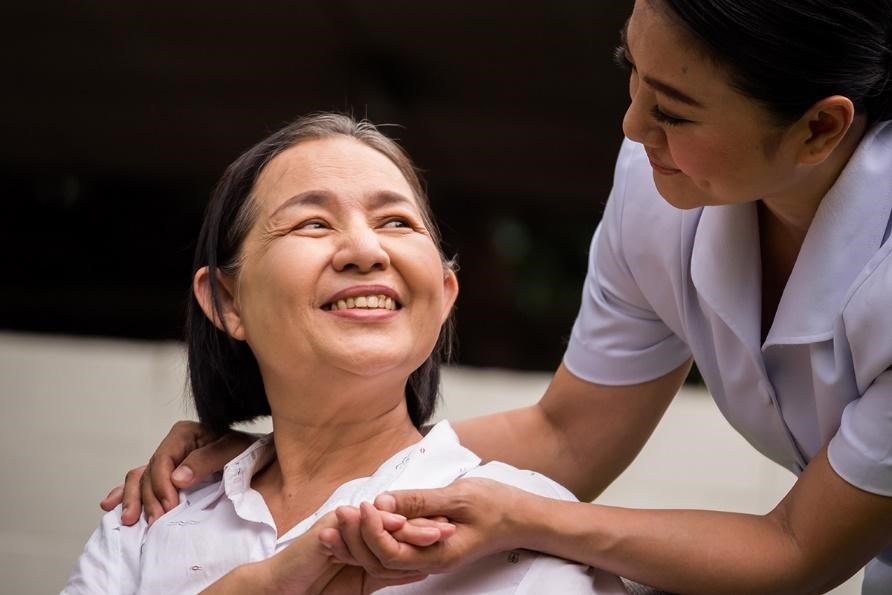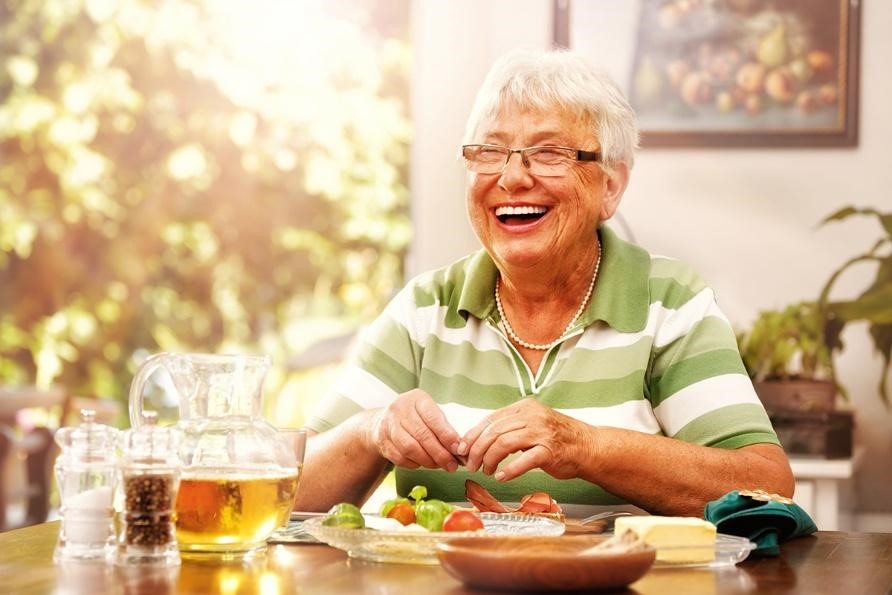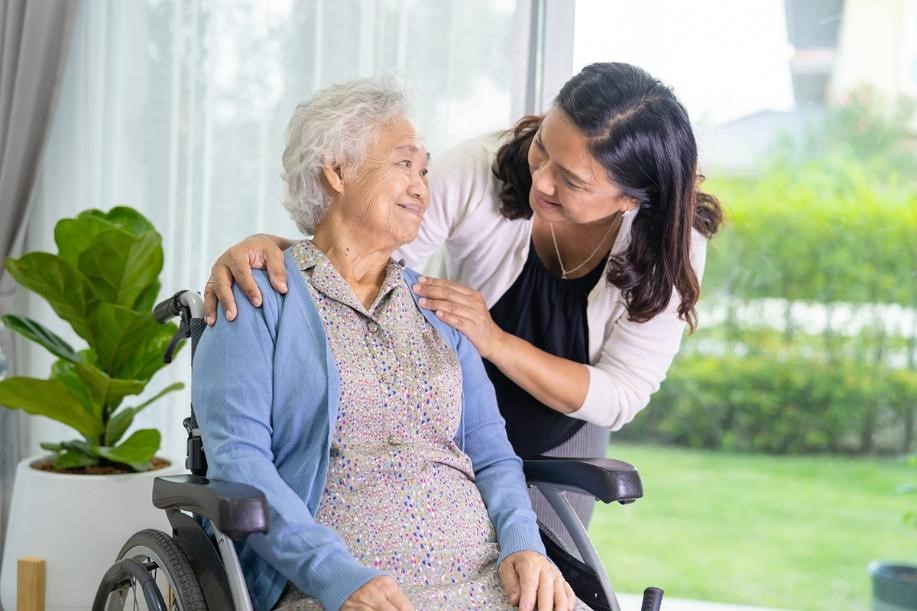
Here are a few suggestions as you consider meaningful goals to help you take positive steps this year:
-
Exercise more.
One study found that older adults between ages 70 and 89 who began a regular exercise program were 28% less likely to lose their ability to walk than their less active peers, even if they hadn’t exercised regularly before. Exercise often seems intimidating for people with chronic illnesses or degenerative diseases like Parkinson’s or arthritis, but the good news is that many seniors can build exercise into their daily routine in a safe, healthy way. Talk to your doctor about how and when to begin an exercise program. -
Adopt a new healthy eating habit.
Healthy food choices can make a noticeable difference in energy levels and overall health. Start by adopting one new habit such as eating five fruits and vegetables each day, drinking more water or choosing healthier dessert options. Dietary needs often change as people age, so talk to your family doctor about the best diet for you and your spouse. -
Connect with friends.
Talk to your spouse about old friends you may have lost touch with and make a plan to reconnect in the new year. You might also want to make plans to attend a social function such as a church service, book club or bridge club weekly or monthly. Make it a goal to make some new friends. -

Schedule a checkup with your family doctor and ask about any health screenings, changes in medication or alterations in health. Ask for advice on improving health and wellbeing, and then follow through! -
Challenge your brain.
Your brain needs to be challenged in order to stay in good working condition just like your muscles do. Engaging in mentally stimulating activities like playing music, reading, or even baking and gardening may slow the onset and progression of conditions like Alzheimer’s and dementia. -
Tackle an organization project.
Do you have a box of old photos waiting to be organized? How about a file cabinet that needs to be cleaned out? Make a plan to work together on completing the project. You’ll likely enjoy reminiscing about your family history and making sure you know how to find important documents, and your spouse will enjoy a sense of accomplishment as you make progress together. -
Promote restful sleep.
Elderly people need just as much sleep as younger people do, but they often find it harder to fall asleep and stay asleep. Small changes such as skipping an afternoon nap and exercising during the day can promote restful sleep at night. If your loved one has a health condition affecting their sleep patterns, talk to their doctor about developing a plan for better sleep. -
Drop a bad habit.
Unhealthy habits like smoking, excessive drinking, or leading a sedentary lifestyle can all significantly impact your health. Consider making a plan to reduce or eliminate these unhealthy habits and replace them with healthier lifestyle choices this year. -
Volunteer.
Volunteering in the community not only gets you and your spouse up and moving, but also helps you feel happier and more fulfilled. It’s a great way to increase self-confidence and connect with other people who care about the same causes and organizations. -
Ask for help.
Perhaps the most important resolution you can make for the new year is to ask for help when you need it. That may mean talking to your doctor if you or your spouse begin to experience symptoms of depression. It may mean reaching out to your family and friends about helping you shoulder the burden of caregiving. Or it may mean talking to your loved one about asking a caregiver to come in and help for a few hours each week. Whatever your circumstances may be, you shouldn’t have to face the challenges of declining health and an increased need for care alone.
As you choose resolutions for the new year, keep in mind that effective goals should be specific and attainable. For example, if exercise is challenging for your spouse, a resolution to exercise more may not provide enough structure or direction. Instead, set a goal of exercising for 10 minutes five times each week.
A new year is an opportunity to make a fresh start. As you make resolutions to improve your loved one’s health and quality of life, remember that the goal is progress not perfection. At this time next year, you’ll be able to look back and celebrate your successes together.
{{cta(‘6a691ae8-409b-4b09-a1d5-2864ffe1c1b5′,’justifycenter’)}}






